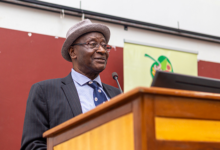
The Ghana National Education Campaign Coalition (GNECC) has kicked against the Ghana Partnership Schools (GPS) Project scheduled for implementation in September.
The network, made up of more than 200 civil society organisations in pre-tertiary education, is of the view that the project is not the best approach to improve learning outcomes in schools.
Instead, it recommended that government conducted a research into best practices in private management of schools and replicated them in public schools as well as increased investment in education to improve supervision.
At a press conference in Accra yesterday, Mr Kofi Asare, GNECC Chairman, described the GPS project as an “attempt to commodify and privatise education using public funds”.
The GPS Project, which would be piloted in the Ashanti, Northern, Central and Greater Accra Regions, seeks to surrender the running of more than 100 public basic schools to private management.
To be run for three years and made permanent afterwards, the Ministry of Education and the Ghana Education Service (GES) are collaborating with ARK, an international consortium to implement it.
This, according to the government, is to improve the standards of education in the country. However the teacher unions last week opposed it, raising concerns including lack of consultation.
Taking similar stance, the GNECC said similar projects implemented in other African countries such as Liberia, Uganda and Kenya did not produce the intended outcome.
According to Mr Asare, gains made in those countries were marginal in comparison to the higher investments made by their governments.
Additionally, he said, the models were unsustainable in the aforementioned countries because the private consortiums did not have the means to sustain the schools without government support and questioned the additional resources the private managers in Ghana would inject into the project.
“This is just another means of giving public funds to private actors,” he said.
In Liberia for instance, Mr Asare said, the private managers pushed excess pupils and under-performing teachers to other government schools and retained the best students and teachers to make profit.
He queried why the government was in a haste to implement the GPS, when the Education Bill which is aimed at providing an efficient management of education was yet to be passed.
BY JONATHAN DONKOR







